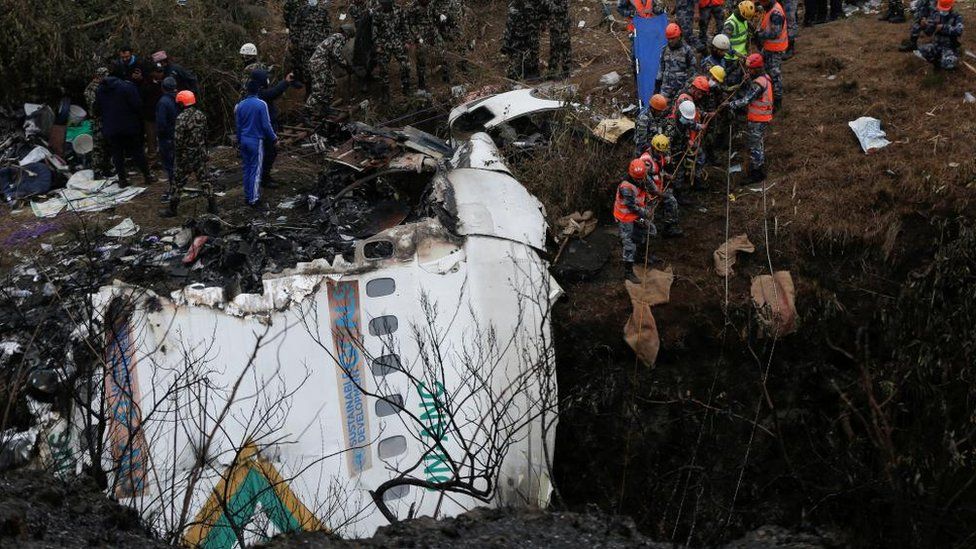ARTICLE AD BOX
 Image source, Reuters
Image source, Reuters
Rescue workers at the site of the Yeti Airlines crash that killed 72
By Nicholas Yong
BBC News, Singapore
A plane crash in Nepal that killed 72 people, including two infants, was most probably the result of its pilots mistakenly cutting the power, said a report by government-appointed investigators.
This caused a loss of thrust that led to an "aerodynamic stall".
The Yeti Airlines flight was flying from the capital Kathmandu to the tourist town of Pokhara on 15 January.
It is the country's deadliest plane crash in 30 years.
The flight on 15 January, which involved an ATR 72, was the flight crew's third sector of the day, shuttling between Kathmandu and Pokhara.
The privately owned plane crashed in the Seti river gorge just 1.5km (0.9 miles) from the airport, prompting a rescue operation that involved hundreds of Nepalese soldiers.
"Due to its momentum, the aircraft flew for up to 49 seconds before hitting the ground," aeronautical engineer Dipak Prasad Bastola, a member of the investigating panel, told Reuters.
The pilots had likely put the condition levers, which control power, in the feathering position instead of selecting the flap lever, he explained. Mr Bastola explained that this caused the engine to "run idle and not produce thrust".
"Following the un-intentional feathering of both engine propellers, the flight crew failed to identify the problem and take corrective actions despite the Crew Alerting Panel cautions," the report said.
The report also listed a lack of appropriate technical and skill based training, high workload and stress, and non-compliance with standard operating procedures as contributing factors to the accident.
It added that the aircraft had been properly maintained, had had no known defects and that the cockpit crew had been qualified in accordance with the rules and regulations of the Civil Aviation Authority of Nepal.
More than a dozen investigators from the US, Canada, France and Singapore were involved in the investigation.
Video from the ground appears to show the plane moments before it crashed
Local resident Divya Dhakal told the BBC in January that she had rushed to the crash site after seeing the aircraft plunge from the sky shortly after 11:00 (05:15 GMT).
"By the time I was there the crash site was already crowded. There was huge smoke coming from the flames of the plane. And then helicopters came over in no time," she said.
For the past decade, the European Union has banned Nepalese airlines from its airspace over safety concerns.
Aviation accidents are not uncommon in Nepal, often because of its remote runways and sudden weather changes that can make for hazardous conditions. Last May, Tara Air Flight 197, owned by Yeti Airlines, crashed into a mountainside, killing 22 passengers and crew.

 1 year ago
24
1 year ago
24








 English (US) ·
English (US) ·